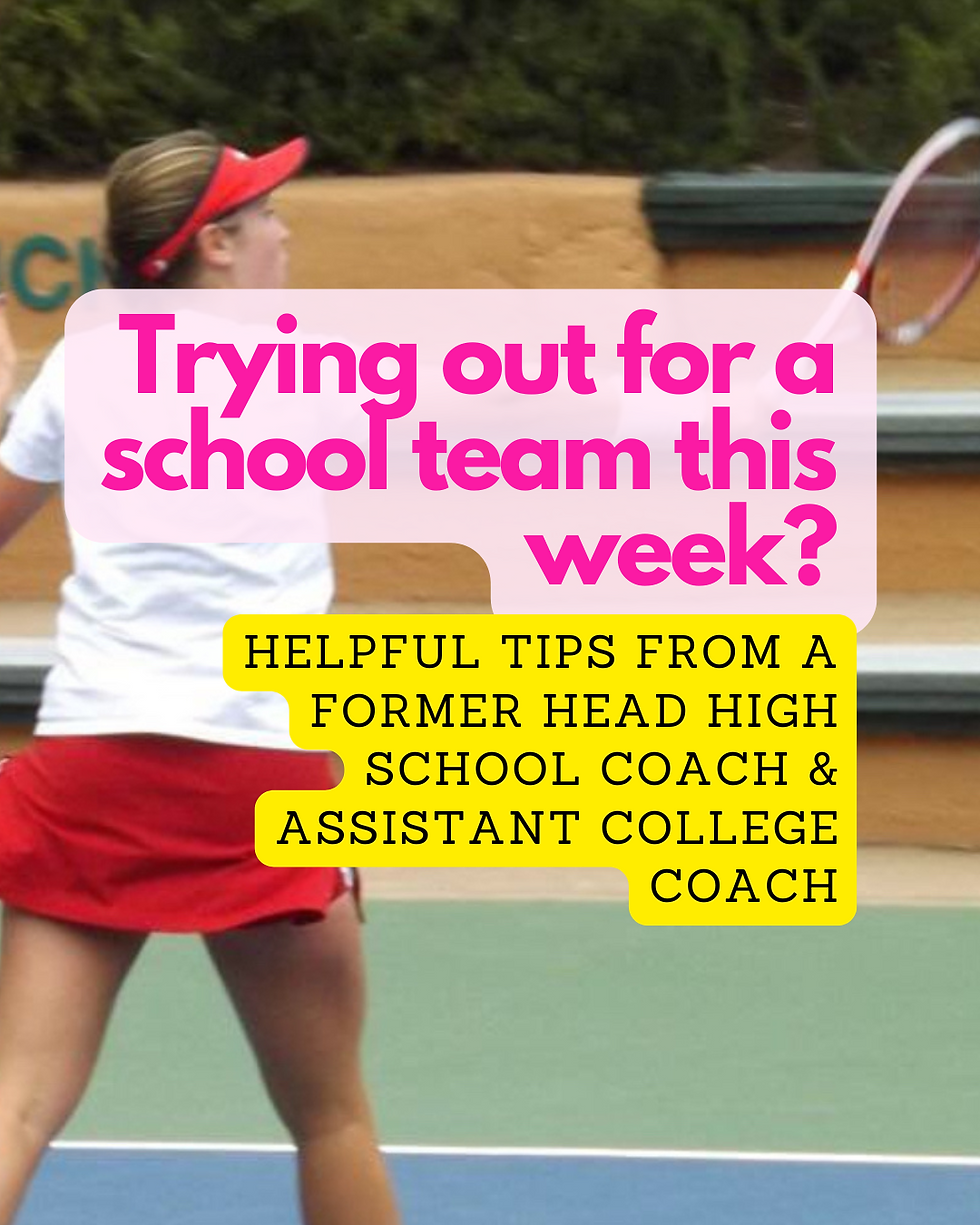3 things I believe about athlete success
- Coach Sav

- Jul 19
- 4 min read

What Does It Really Mean to Be a Successful Athlete?
Your first thought might be: "Someone who consistently wins." I used to think the same thing.
But if you’re the kind of athlete who wants to grow, I want to change that belief.
Because guess what? Even the best athletes lose, a lot. And focusing on improving can be far more meaningful than just crossing your fingers for wins.
And I think we ALL want to improve. Right?
As someone who’s lived the athlete life, from junior tennis to college courts to adult leagues, and now coaches athletes and performers on the mental game, I’ve come to define success differently.
So let’s dig into what success actually means…And the 3 beliefs, I hold that shape everything I do as a coach.
But first, let’s redefine success. Starting with the fact that even elite athletes lose often.
Novak Djokovic holds a career record of 1,150–231, which means he’s lost over 200 matches despite being one of the greatest ever
Serena Williams finished her career with around 858–156 in singles matches—that's still over 150 losses in one of the most dominant careers ever
Michael Jordan was beaten a total of 366 times in regular-season games alone
👉 It’s not just athletes. Some of the most successful performers, such as public speakers, musicians, actors, etc. often tell stories of early career failures: missed auditions, flop shows, bad reviews. But they learned, adapted, and came back stronger.
J.K. Rowling: her original Harry Potter manuscript was rejected by 12 publishers before one took it on. She is now a literary legend.
The takeaway? Elite athletes & performers STILL LOSE. What makes them legendary is how they recover, adapt, and grow.
Losses are a normal part of elite performance.
#1 Success Isn’t About Being Fearless
One of the biggest myths out there?
That successful athletes “don’t get nervous.” 👉 FALSE.
Success isn’t about avoiding nerves, it’s about knowing how to work with them.
Whether it’s the pressure of a match, the energy of a crowd, or the expectations you put on yourself, nerves are normal. What matters is how you respond.
🧠 Weinberg & Gould (2023) emphasize the importance of anxiety regulation in performance. Instead of ignoring their nerves, the best athletes train for them. They know how to breathe through them, reframe the moment, and stay grounded in their process.
This is mental training in action.
#2 Confidence Is Built, Not Born
I hear this all the time:
“If I were more confident, I’d play better.”
You don’t have to wait to “feel confident” to start performing well.
If you keep "waiting", you won't get there. Trust me.
Confidence isn’t a trait you either have or don’t 👉 it’s something you build.
🧠 Williams & Krane (2021) describe confidence as an essential mental skill that can be strengthened through preparation, past success, positive self-talk, emotional control, and visualization. In other words: confidence is trainable.
The more you work on your mindset (in practice, in school, in everyday life) the more that confidence grows. And the best part? The confidence you build off the court boosts your confidence on the court and vice versa.
#3 Mental Training Isn’t Optional, It’s Essential
If you train your body but never your brain… you’re leaving potential on the table.
Mental training isn’t something you save for when things are falling apart, it’s something you build into your routine to prevent the spiral in the first place: to handle pressure, to bounce back quicker, to stay locked in on your goals.
It’s a grind, and I still do the work myself. Even as a coach, I’m constantly checking in on my focus, energy, and mindset. That’s the nature of growth. It doesn’t stop.
And that’s what I want for you, too. To train your brain the way you train your body, because success starts in the mind. 🧠💪
Why I Do This Work?

I’ve played tennis most of my life. Through the junior years, in college, and now in competitive adult leagues. And while I’ve always loved the game, I know what it’s like to overthink, spiral, and feel stuck in your head. It's not fun.
The tools I teach now? I wish I had them back then.
That’s why I’m so passionate about this work. I’ve seen the impact mental training has made in my game & everyday life, and I’ve watched it transform performers I work with today.
Ready to Train Your Mindset?
If you’re an athlete, performer, coach, or parent who wants to build more confidence, bounce back faster, and crush goals without the constant stress spiral 👉 let’s talk.
🧠💪 I offer FREE 20-minute consultation calls to help you get started.
References
Weinberg, R. S., & Gould, D. (2023). Foundations of sport and exercise psychology (8th ed.). Human Kinetics.
Williams, J. M., & Krane, V. (2021). Applied sport psychology: Personal growth to peak performance (8th ed.). McGraw-Hill Education.




Comments